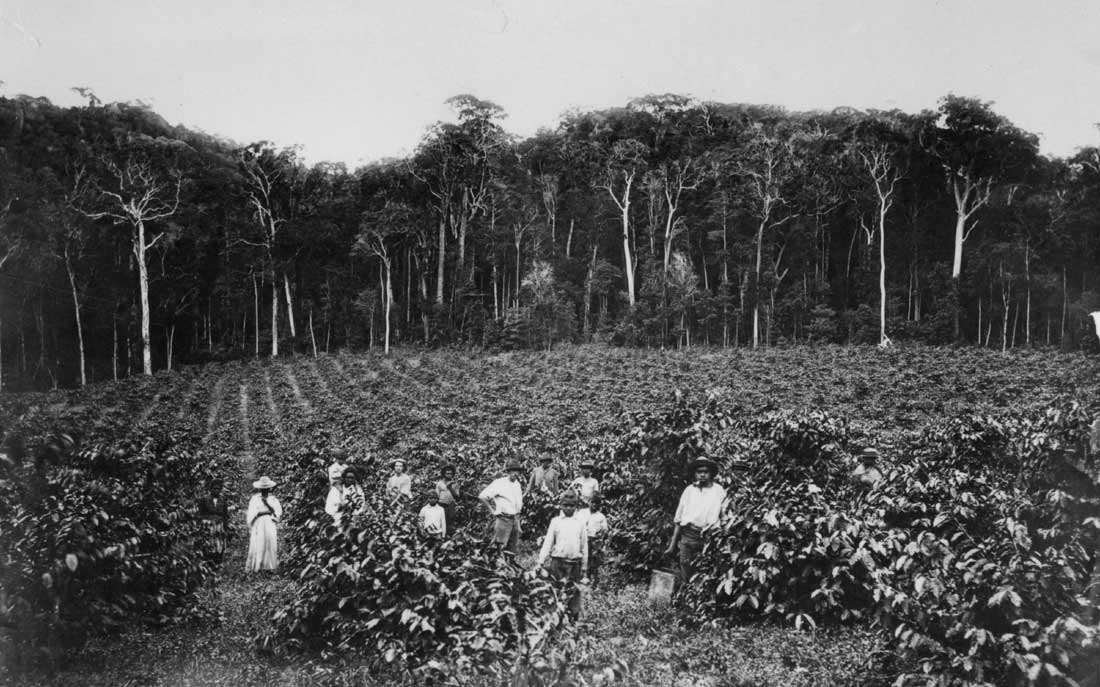 Pacific Islander workers on a coffee plantation, c1900
Pacific Islander workers on a coffee plantation, c1900
TLF ID R8011
This black-and-white photograph shows indentured Pacific Islander labourers manually gathering coffee beans from lines of bushes on a Kuranda coffee plantation on the Atherton Tableland in Queensland. This image shows male, female and child labourers standing among the shoulder-high coffee bushes. The Pacific Islanders are dressed in Western-style clothes.
